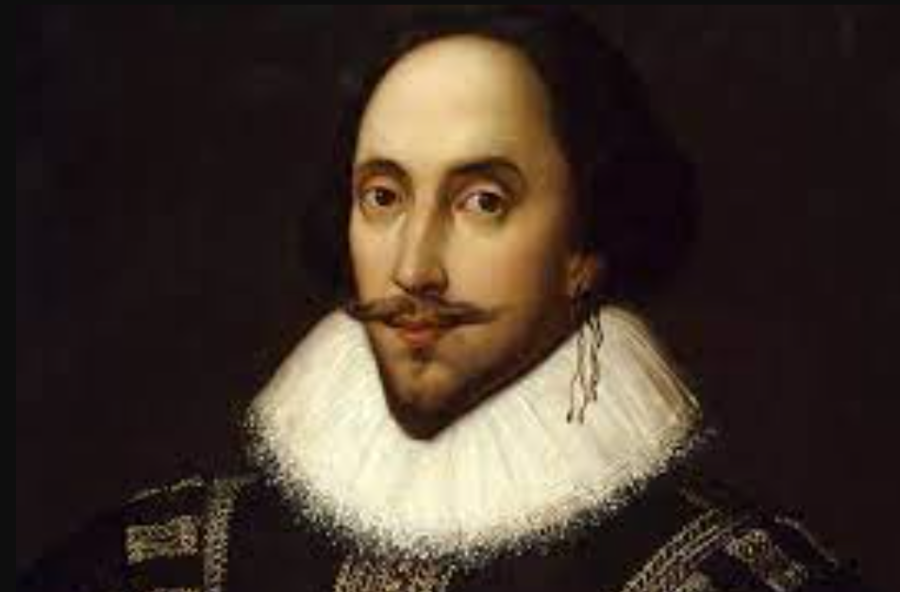
The centrality of the Muslim world to Shakespeare’s work
Ignored for centuries, the presence of Muslims are prominent in the oeuvre of one of Britain’s most quintessential figures.
William Shakespeare (1564-1616), England’s most famous playwright and symbol of Britishness, was closely connected to the Islamic world through his extensive body of beloved work.
“Without Islam, there would be no Shakespeare,” Mathew Dimmock, Professor of Early Modern Studies (English) at the University of Sussex, matter-of-factly states.
“Without Tudor and Jacobean England’s rich and complex engagement with Islamic cultures, the plays written by William Shakespeare would be very different, if they existed at all,” Dimmock told TRT World.
Due to Queen Elizabeth I’s political and trade alliances with the Muslim world, in particular the Ottoman Empire and the Moroccan Kingdom, the influence of Muslim culture on England was immense and this penetrated into literature and theatre.
The first commercial playhouse in London opened in 1576. By the time Shakespeare arrived on the scene, there were already plays that used the Islamic world as a backdrop, and the stories of Muslim empires and people were massively popular. There were in fact, more than 60 plays between 1576-1603 that featured Turks, Moors and Persians.
Shakespeare’s most famous depiction of a main character with Muslim heritage was ‘Othello’ who is described as a ‘Moor’ from Venice. In the play, it is implied that he had converted to Christianity. However, there have been some plausible theories that Othello never actually changed his faith.
A 2018 interpretation of Othello by the English Touring Theatre and directed by Richard Twyman presents this alternative view of Othello as a practising Muslim.
In an interview with Al Jazeera, Richard Twyman stated that historian Jerry Brotton’s research on this subject had opened his eyes.
“We knew historically about the Moorish kingdom of Spain (where Spanish Muslims or Moriscos were forcibly converted to Christianity in 1492.) But I never put it together that Moor might also be referring to Othello’s spiritual and cultural identity,” Twyman said.

Yet, Shakespeare’s connection to the Muslim world has been minimised in the past few centuries. “Modern times have made Othello a tragedy of racial conflict. Post-twentieth century portrayals have downplayed the Muslim context which shuts off the complexity of its meaning, and a key component to understanding the play,” argues Dimmock.
Some of the confusion seems to arise from the meaning of the word ‘Moor’ during this period which has been lost in our present-day interpretation. At the time Shakespeare was writing, the word ‘Moor’ did not just refer to a darker skin tone but a Muslim from anywhere in the Islamic world.
Elizabethan English did not use the term ‘Muslim’; instead, a multitude of words was used to describe followers of the Islamic faith, from ‘Moor’, ‘Arab’, ‘Saracen’ to ‘Turk’. The words were often used interchangeably, and a lack of understanding of this terminology has resulted in the omission of the Muslim world and its significance to Shakespeare’s work, and English literature in general, during this time.
There were many more of Shakespeare’s plays beside Othello that featured Muslim characters, places and objects. Theatre Director, Sean Aita, states that “Twelfth Night presents us with a setting which shows evidence of being Islamic in culture, despite the fact that it shares many features of Elizabethan England.” There are also references to the Islamic world in ‘Titus Andronicus’ which has a Moorish character, and ‘Taming of the Shrew’ refers to “Türkiye cushions embossed with pearl.”
However, these mentions just skim the surface. In fact, Dimmock states that Shakespeare included “around 150 references to Islamic motifs in 21 plays – to Turks and Saracens, to ‘Mahomet’, Morocco and Barbary.”
The reality is that Shakespeare and English people in the sixteenth century knew of the Muslim world; they may not have had an understanding of Islam but were fully aware of Muslim riches and power. This was the context of the time. Theatre contributed to making this awareness more mainstream.
Some English people may have even met Muslims who came to England as diplomats, traders or captured slaves. Wealthier English folk certainly knew of the goods and indulgences from the Muslim world, including carpets, exotic foods and coffee.
“We need to look at the context of the world in which Shakespeare was writing and the link to Islam. It can be no other way as the Muslim world was core to Shakespeare’s work,” Dimmock said.
The Muslim presence in England and indeed the Western world is a historical fact, and not a twentieth-century phenomenon. The mainstream narrative incorrectly revolves around Muslims as aliens to the West, having only arrived in the United Kingdom with the immigration waves of the 1950s and 1960s, and then subsequently as refugees.
This narrative conveniently ignores the depth of interaction that the West had with the Muslim world, as well as the latter’s massive influence on this small island.
The presence of Islam is in fact deeply embedded, even in the most quintessential of British symbols such as William Shakespeare.

